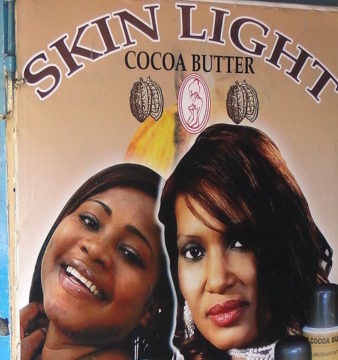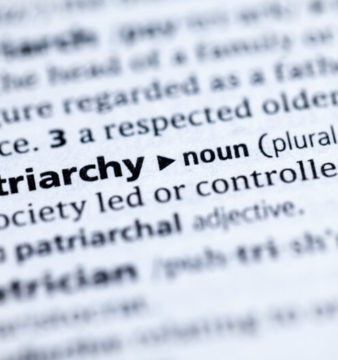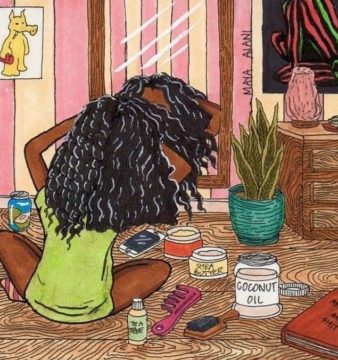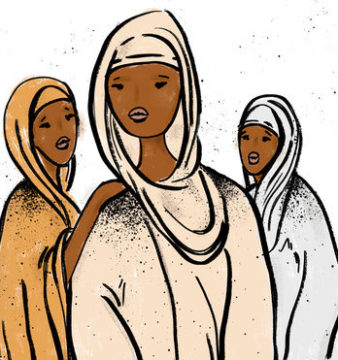The Stigma Surrounding Dating Apps in Sudanese Society
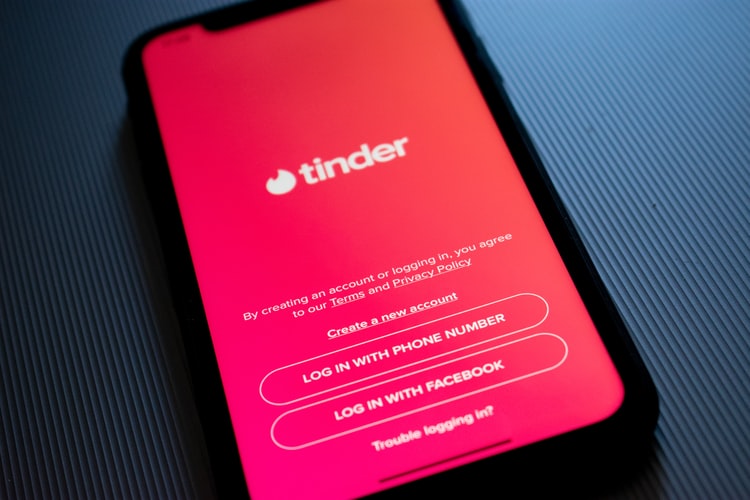
Dating apps have become increasingly popular in the past decade. Today, we can connect with a stranger on the other side of the world with a simple swipe on our smartphones.
The modern dating landscape has transformed in the past decade because today’s millennials and ‘Gen Z’ are looking for love on dating apps. Hectic university and work schedules make dating, whether casually or with intent to marry quite challenging. That’s why many consider dating apps as a quick, easy and convenient way to meet potential partners where you can enter the preferences you are looking for in a partner, whether it is their age, location, height and sometimes race, and you’re presented with an array of prospects to choose from.
Therefore, with apps such as Tinder, Hinge, Bumble and many more (think Muzmatch and Minder) available to singletons from all walks of life, using dating apps to find love is a concept that has become very normalised and widely accepted in most parts of the world. Nowadays it is not uncommon to find out that a couple met, fell in love and got married off a dating app.
However, it is a known fact that Sudan is a conservative Muslim-majority country, which values its traditions and holds it close to its heart. So, how would it react to this phenomenon? What were the experiences of Sudanese singletons using these apps? Could they really help you find love? Are friends and family open to the idea of meeting a partner on an app? Or are they simply a by-product of hook-up culture?
In the conservative Sudanese society, one could assume that an idea of using a dating app to meet a future spouse may not be well received. And that apprehension may be justified considering the fact that dating apps have a reputation of being the driving force behind ‘hook-up culture’, which undoubtedly and unequivocally is not accepted by Sudanese society. Additionally, dating apps may make it difficult to truly know one’s intentions as that ‘face-to-face’ bond is non-existent; and users are not vetted therefore there is a safety element that is neglected, which could put other users in danger.
Furthermore, the stigma associated with dating apps in Sudan can have some people feel ashamed and embarrassed – leading them to not disclose that they are using them even if they have the purest of intentions. It’s not uncommon to find people using fake names and/or pictures out of their fear of being caught using the apps by people that they know which is ironic in itself. This is evident in the subjects interviewed for this article who were not comfortable disclosing their real names, out of fear of any kind of consequence that may result from speaking about their experiences on dating apps.
Reputation in danger?
Aziza* is a 25-year-old medical doctor who was, for a period in time, actively using Tinder in Sudan to find a partner, but decided that its best to stay away from such apps in Sudan because, in her experience, Sudanese society associates it with loose morals.
‘I was finding it really hard to meet guys that I actually could see myself in the long run with. My parents were bringing up potential prospects that I just could not see myself with,’ she said.
Aziza downloaded the app after a friend suggested it, ‘She said that she met her boyfriend on it and that I could have greater control of who I was searching for, by setting location and age filters, which seemed perfect to me,’ she explained. Aziza was on the app for about three months in which she spoke to many potential suitors, but never wanted to meet with them because she didn’t know if she could trust them, as she was worried for her safety – even though the majority have not given her a reason to feel that way.
One day at work, she got a stern phone call from her brother. ‘Apparently, one of his friends saw me on there, and decided to screenshot my profile and send it to my brother, who was quite angry with me. He told me that only ‘thirsty’ people would use such an app and that if any of our family members found out I was using the app, that my reputation would be tarnished,’ Aziza explained.
Aziza says that if she lived abroad, she would consider online dating because she would feel safer engaging in it due to its commonality. ‘The fact that it is such a foreign concept in Sudan made me apprehensive because I wouldn’t know what people’s true intentions are, I also don’t have to worry about nosy relatives ‘ratting’ me out,’ she explained.
Aziza’s brother shares a common sentiment with many people in Sudan. For many, the usage of online dating apps to meet people is a strange and foreign concept, which could be seen as ‘desperate’ considering the fact that usually your parents, siblings and friends could easily set you up if you express you’re ready to marry (sometimes even if you have not).
Additionally, in Sudan, the family is heavily involved when it comes to choosing a potential lifelong partner for their child. Apps such as Tinder and Bumble completely eliminate that. It offers privacy, enabling two people to get to know each other without any distractions or ‘supervision’, which does not sit well with many family members, due to societal and cultural norms.
Diaspora dating made easier?
Interestingly enough, many could argue that the stigma associated with online dating is not as harsh for Sudanese abroad. That could be attributed to factors such as parents understanding that their children are growing up in more liberal societies, the communality of dating apps in those countries and more importantly, parents understanding that because there is a smaller pool of potential partners to choose from abroad, their children mind find it harder to settle down.
This was the case of Yasmin*, a 23-year-old Sudanese-Canadian HR professional based in Toronto, Canada, who says that she turned to online dating because was finding it difficult to meet romantic prospects partners in both her professional and social circles. ‘It’s hard to access groups of people with similar backgrounds when you’re abroad, the pool automatically shrinks. I went online because I thought I’d be able to access a bigger people faster with less legwork and effort,’ she said.
Although Yasmin stated that her parents would not object to her exploring her options online, she is very much aware of the stigma associated with using dating apps in Sudanese communities.
She has expressed that if she were to meet her match online and things start to get serious, she would omit some details relating to the platform they met on. Especially if it’s an app like Tinder, which is widely regarded as an app that promotes promiscuity and casual hook-ups. ‘That detail is definitely going to be changed in the version of the truth I’d share with my parents,’ she said.
However, even though two of Yasmin’s closest friends met their spouses on dating apps, she is still sceptical of the ability to find a serious partner on them due to her past experiences with men she’s met on the platforms, so she does not fault some Sudanese people for feeling the way they do about the apps. ‘There are a lot of people there, both men and women who are willing to waste your time, and that is obviously not ideal for someone who is dating with the intent to marry,’ she added. However, she doesn’t believe it’s impossible as she stated, ‘I think it all comes down to your attitude and your approach. If you stay open minded while knowing what you want and what you won’t compromise on, and then practice safe online dating rules, you’ll have a lot more luck finding what you’re looking for.’
Girls have it harder?
Like Yasmin, 29-year-old Karim*, believes that dating apps are more suited for those looking for casual relationships. Like many, he turned to online dating apps because meeting new people was becoming a challenge with the hustle and bustle of everyday life. ‘Dating appsmake it easier for me to search for someone based on my own time schedule, so I feel in control and can do it at my own pace,’ he said.
Karim, who lives in Kenya, is an active user of dating apps when he is on holiday in Sudan as he thought it would allow him to meet third-culture individuals like him, but he believes the stigma around dating apps seems to have a stronger effect on a certain segment of society. ‘I do believe there is a stigma, and from my experience using the apps, it seems to affect women more negatively than men. It is the reason why a lot of Sudanese girls would rather put up a picture of a flower instead of their real photo because they’re worried of judgement or the possibility of someone taking a screenshot of the profile and circulating it widely,’ he said.
However, even though Karim is a man, he also bears the weight of the stigma and says that he would not feel comfortable disclosing to loved ones that he met a significant other on a dating app. ‘I think this is where the old-fashioned Sudanese in me would come out – I’d be a bit ashamed to admit that we met on a dating app,’ he said.
The stigma surrounding dating apps in Sudan remains for now; however, in the age of a post-revolution Sudan, cultural norms may shift. However, it is truly up to you to decide if they are for you. You might have fun and make friendships, you might fall in love, or you might have a horrible experience that would put you off of dating apps forever. But if you do decide to give them a shot, always make sure that you are taking the right precautions. Remember, they are still strangers!
Note: The names with an asterix * used in this article are not real as the interviewees chose to share their experiences in anonymity.
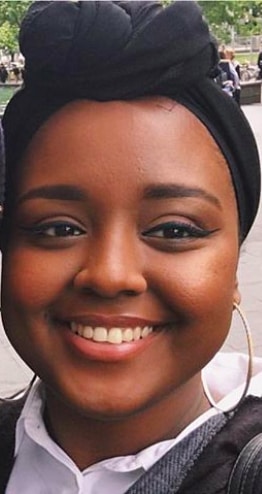
Ola Khalil is a 24-year-old public relations professional currently based between Abu Dhabi, UAE and Australia. When she’s not working on a PR campaign, Ola enjoys writing, meeting new people and listening to old school hip-hop which she considers her first love. She is proudly Sudanese and hopes to one day go back to the motherland to make a change.

